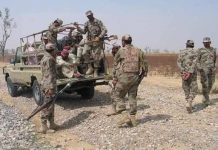The Balochistan National Party and the National Party, which are considered the nationalist parties of Balochistan, have recently faced significant setbacks in the local elections. While these parties primarily claim to focus on Baloch national issues and maintain a distinct political identity from federal parties in Pakistan, their defeat against the federal parties in the elections has constrained their influence in Balochistan.
In the municipal elections across thirty-five districts of Balochistan, the Balochistan National Party and the National Party only managed to secure seats in a few districts. Notably, the Pakistan People’s Party emerged victorious in District Kech, which is a stronghold for the National Party’s nationalist politics. Similarly, in Khuzdar district, the home district of the head of the Balochistan National Party and a member of the National Assembly of Pakistan, the candidate from the People’s Party won the seat of District Council Chairman.
The conflicting approaches of the Balochistan National Party and the National Party have proven detrimental to their respective parties and nationalist politics as a whole. While these parties claim to engage in parliamentary politics in Pakistan to counter government-supporting chieftains, land mafias, drug lords, and non-political forces, they have, on several occasions, been accused of allowing individuals associated with drug mafias, death squads, and non-political factions to enter politics.
For instance, Imam Bizenjo, one of the world’s notorious drug lords, who was nominated by American President Barack Obama in 2009 as one of the top four drug dealers of the world, was included in the National Party. Additionally, the party formed an electoral alliance with Shafiq Mengal, the leader of a death squad, during the 2018 elections for the Khuzdar seat. In the recent local elections, the Balochistan National Party also experienced internal divisions, with the Major Jamil Dashti faction supporting the alleged drug kingpin Hothman for the district council chairman position.
Given the prevailing challenges in conflict-ridden Balochistan, where the ruling circles of Pakistan have already impeded the progress of Baloch national politics, it is crucial for the nationalist parties to reassess their strategies. If these parties continue to align themselves with the federal politics of Pakistan, they risk becoming marginalized in the future. It is essential to emphasize that the federal parties in power in Balochistan do not prioritize the resolution of Balochistan’s national issues.






























